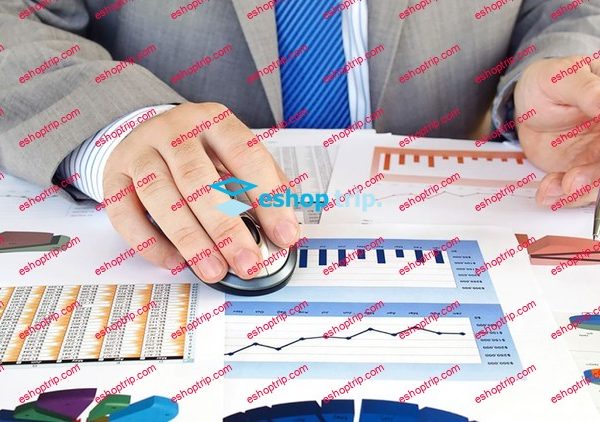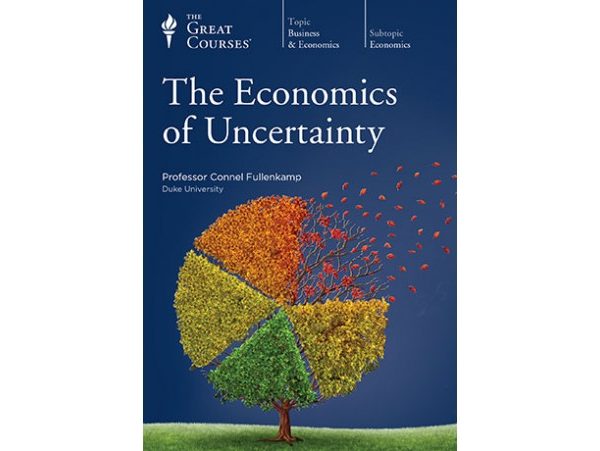Published 10/2023
MP4 | Video: h264, 1920×1080 | Audio: AAC, 44.1 KHz
Language: English | Size: 8.07 GB | Duration: 6h 6m
Master Program on Sustainability Reporting, ESG and Global Framework GRI, UNSDG, BRSR, Sustainable Finance
What you’ll learn
Understanding the process of Evolution of Sustainability – ESG – GRI, BRSR
Business Reporting Requirements as per Government Mandate and rational behind it
Global Framework of Sustainability and its requirements
Overall understanding of Business Environment in context of Sustainability
Sustainable Finance
United Nations Sustainable Development Goals
Impacts of ESG on Businesses in Global Eco System
Requirements
Any Finance and Accounts, Human Resources, Maintenance People or Board members, CEO, CFO, COO or key executives or employees can enroll and no particular skill set is required
No Technical skill set or knowledge required. Beginner can understand and enhance their skills and career in ESG Sustainability
The person who have interest in ESG and consider sustainability as need of the Hour for “Future we Want” for all of us together
Description
This Sustainability Course will enable you to understand the key terms relating to Sustainability and ESG, BRSR. Further ensure you have deeper understanding what are the compliance requirement and global development in context of sustainability and what are the Global reporting requirements such as GRI, BRSR-SEBI, UNGP etc. Sustainability has become mandatory requirements for reporting along with Annual Financial Statements along with SDG Goals and many countries have started working on it on mandatory and voluntary basis.In the broadest sense, sustainability refers to the ability to maintain or support a process continuously over time. In business and policy contexts, sustainability seeks to prevent the depletion of natural or physical resources, so that they will remain available for the long term.Different Global Reporting FrameworkIFRS sustainability disclosure standards.GRI standards.SASB standards.CDSB Framework.CDP Framework.TCFD Framework.SBTI Framework.United Nations Global Impact.The GRI Sustainability Reporting Standards (GRI Standards) help organizations increase their transparency and communicate both their positive and negative impacts on sustainable development. GRI, SASB, and CDSB are the big sustainability reporting framework and covering almost all the related matters which can be looked into for sustainability.3 Pillars of SustainabilityThe idea of sustainability is often broken down into three pillars: economic, environmental, and social—also known informally as profits, planet, and people.In that breakdown, the concept of “economic sustainability” focuses on conserving the natural resources that provide physical inputs for economic production, including both renewable and exhaustible inputs.The concept of “environmental sustainability” adds greater emphasis on the life support systems, such as the atmosphere or soil, that must be maintained for economic production or human life to even occur. In contrast, social sustainability focuses on the human effects of economic systems, and the category includes attempts to eradicate poverty and hunger, as well as to combat inequality.
Overview
Section 1: Introduction to Sustainability
Lecture 1 Introduction to Sustainability
Section 2: Key Terms to Sustainability
Lecture 2 Key Terms to Sustainability
Section 3: Evolution and Need of Sustainability
Lecture 3 Evolution and Need of Sustainability
Section 4: Global Trends in Corporate Sustainability Reporting
Lecture 4 Framework, Climate Change, Reporting and Human Rights
Lecture 5 Sustainable Development
Section 5: UNITED NATIONS SUSTAINABLE DEVELOPMENT GOALS (UNSDG) 2030
Lecture 6 UNITED NATIONS SUSTAINABLE DEVELOPMENT GOALS (UNSDG) 2030 Agenda
Lecture 7 UNSDG Part 2
Lecture 8 UNSDG Part 3
Lecture 9 UNSDG Part 4
Section 6: GRI (Global Reporting Initiative) and IR ( Integrated Reporting) Framework
Lecture 10 GRI and IR Framework
Lecture 11 Navigation to GRI Website and GRI vs SASB
Lecture 12 Integrated Reporting Framework
Section 7: SASB Framework
Lecture 13 Overview of SASB Framework and Standards
Section 8: TCFD Framework
Lecture 14 Overview of TCFD Framework
Section 9: CDSB Framework
Lecture 15 Overview of CDSB Framework
Section 10: CDP, SBTi, UNGP
Lecture 16 Overview of CDP & SBTi, UNGP
Section 11: Sustainable Finance & ESG Index and Rating Providers, PRI, SFDR
Lecture 17 Overview of Sustainable Finance & ESG Index and Rating Providers, SRI
Section 12: Fiduciary Duties Of Directors, BRSR, NGRBC, SEBI Circular, MCA Committee
Lecture 18 Fiduciary Duty of Directors
Lecture 19 CSR
Lecture 20 Principles of NGRBC
Lecture 21 Principle 1 of NRGRBC
Lecture 22 Principle 2 of NRGRBC
Lecture 23 Principle 3 of NRGRBC
Lecture 24 Principle 4 of NRGRBC
Lecture 25 Principle 5 of NRGRBC
Lecture 26 Principle 6 of NRGRBC
Lecture 27 Principle 7 of NRGRBC
Lecture 28 Principle 8 of NRGRBC
Lecture 29 Principle 9 of NRGRBC
Lecture 30 SEBI Circular on Business Responsibility and Sustainability Reporting (BRSR)
Lecture 31 BRSR Disclosure Format Part 2
Lecture 32 BRSR Disclosure Format Part 3
Lecture 33 BRSR Disclosure Format Part 4
Lecture 34 BRSR Disclosure Format Part 5 and Guidance Note on BRSR Disclosure
Section 13: Completion of Sustainability Course
Lecture 35 Yeah you completed
This course will give you insights and develop required knowledge set with respect to requirements for Sustainability , ESG, BRSR and how to use them into your company when running your own company or working as employee,This can be joined by those who want to develop their career in ESG, Sustainability or who wants to make corporate business reporting and compliances
Homepage
https://anonymz.com/?https://www.udemy.com/course/sustainability-reporting-corporate-esg-global-framework/











Reviews
There are no reviews yet.